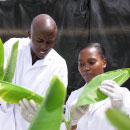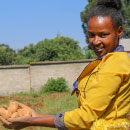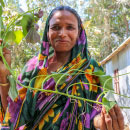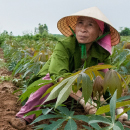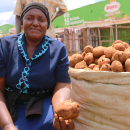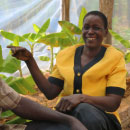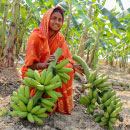RTB and One CGIAR must ensure that any innovations we develop and promote are inclusive and beneficial to women as well as men.
The need to consider disadvantaged social groups applies equally to the scaling of innovations; that is, the process of increasing the impact and use of an innovation by a larger share of potential beneficiaries. While it is well recognized that gender inequality in agriculture persists, scaling tools currently provide practitioners with limited guidance on how to consider and integrate gender considerations in the design of scaling strategies.
In response to this need, RTB’s interdisciplinary social science team has developed a gender responsible scaling tool. The tool helps project teams to incorporate gender in the design and implementation of scaling strategies. It assists teams to anticipate who in a specific population would be able and willing to use a specific innovation and what factors might prevent others, especially women and other disadvantaged social groups, from using the innovation. The scaling tool also guides the project team to assess potential positive and negative (short- and long-term) consequences of scaling an innovation and provides guidance on the development of strategies to mitigate negative consequences.
The tool uses a stepwise approach, much like Scaling Readiness, and can be used independently or in conjunction with Scaling Readiness. By guiding project teams through a series of questions while providing information on key concepts, the scaling tool enables project teams to specify and define the choices they make for scaling a particular innovation. Ultimately, the tool provides the team with a summary of strong points, risks and knowledge gaps and draws conclusions about the ‘readiness for gender-responsible scaling’ of both the project team and the specific innovation and provides recommendations.

